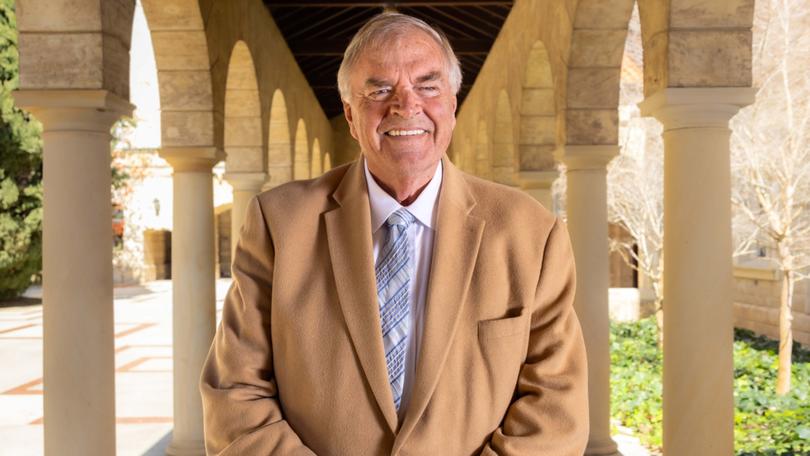Kim Beazley rebukes Peter Dutton, backs Labor’s tax breaks for critical minerals
Former Labor leader rebukes Federal Opposition’s hardline stance on critical minerals processing, warning that unless winners were chosen, Australia would end up as losers.

Former Labor leader Kim Beazley has rebuked the Federal Opposition for railing against tax breaks to turbocharge critical minerals processing, adding to the chorus of criticism of Peter Dutton’s hard-line position.
The former Defence Minister and WA Governor said onshore processing was crucial to help shield Australia and its allies from China’s domination of the global critical minerals supply chain.
Mr Beazley said the tax production credits for processing and refining announced in the Federal Budget were a “good start” but added “there is much more that needs to be done”.
Sign up to The Nightly's newsletters.
Get the first look at the digital newspaper, curated daily stories and breaking headlines delivered to your inbox.
By continuing you agree to our Terms and Privacy Policy.In a message to the Federal Coalition after it blasted the incentives as “billions for billionaires”, Mr Beazley said critical minerals were “one place where unless you pick winners, you are simply losers”.
As the centrepiece of Labor’s flagship Future Made in Australia plan, the tax breaks have mostly been cast as a domestic-focused policy to kick-start industries critical to the net zero transformation.
But building up onshore processing and refining of critical minerals is also seen as a strategic imperative as Australia and its allies — in particular the US — attempt to reduce their reliance on China.
China controls much of the global critical minerals supply chain, leaving countries, including Australia, vulnerable to trade shocks and market manipulation from Beijing.
State-owned Chinese mining companies operating in Indonesia have been blamed for flooding the market with cheap nickel, causing prices to crash and putting WA operations on the brink of collapse.
Critical minerals are essential for clean energy as well as defence technologies, including weapons.
The Federal Government plans to offer companies a 10 per cent tax credit on costs related to processing and refining of 31 critical minerals, starting from 2027-28.
The scheme is estimated to cost $7 billion across the next decade and more than $17 billion by 2041.
Mr Beazley said further rounds of support could come via direct investment in projects, non-recourse loans or offtake agreements.
Australia should be targeting a role further down the supply chain so it could export fully processed metals directly to its allies, cutting China out of the chain, he said.
“This ensures that the products that we need to deal with climate change, and the products that we need to deal with defence . . . will be dealt with,” he said.
“We will be able to play a part in all of this — and not see us and our allies totally dependent on China.”
Mr Beazley said he was surprised the Federal Coalition was so opposed to the policy given the strategic imperatives.
Resources Minister Madeleine King has described the Coalition’s stance as “mind boggling” given the importance of critical minerals to national security.
“The Liberals and the Nationals are ignoring the realities of thin markets and market domination in critical minerals,” she said.
